Previous Principal Investigators

Ted Brader
ANES Principal Investigator 2014-2022
Ted Brader is Professor of Political Science at the University of Michigan, as well as Research Professor in the Center for Political Studies at the Institute for Social Research, and Faculty Associate at the Weiser Center for Emerging Democracies. He received his PhD in 1999 from Harvard University. His research spans many topics including the role of emotions in politics, the development of partisan identities, media effects on public opinion, experimental and survey methods, and how citizens make sense of a wide variety of political issues (e.g., immigration, globalization, terrorism, public health crises, natural disasters, claims of religious discrimination). He is the author of Campaigning for Hearts and Minds (University of Chicago Press, 2006). His research has been published the American Journal of Political Science, Journal of Politics, Public Opinion Quarterly, and many other professional journals. He has collected original data on citizen attitudes in Bulgaria, Great Britain, Hungary, Italy, Moldova, Poland, Russia, Sweden, and the United States. Brader is Associate Principal Investigator for Time-sharing Experiments for the Social Sciences (TESS). He has served on the governing council of the International Society of Political Psychology. In 2009, he received the Emerging Scholar Award from the Elections, Public Opinion, and Voting Behavior section of the American Political Science Association. Prior to becoming a principal investigator of the American National Election Studies (ANES), his work with the project began as a member of the ANES Board and Associate Principal Investigator from 2010 to 2013.
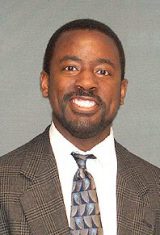
Vincent Hutchings
ANES Principal Investigator 2010-2017
Vincent Hutchings is a Professor of Political Science at the University of Michigan and a Research Professor at the Institute for Social Research. He received his Ph.D. in 1997 from the University of California, Los Angeles. Professor Hutchings teaches courses in African American politics, public opinion and voting behavior, and legislative behavior in the US. His research interests focus on the circumstances under which citizens are attentive to political matters and engage in issue voting. He published a book on this topic entitled Public Opinion and Democratic Accountability in 2003, from Princeton University Press. His research also examines the ways in which political appeals carried through the mass media can influence attitudes about salient social groups such a racial and ethnic minorities and women. Additionally, his work has explored the ways in which political campaigns can frame information about racial issues in order to activate and make politically relevant voter attitudes about particular racial groups. His current project focuses on inter-racial and inter-ethnic competition and the ways in which elite communications can exacerbate or diminish inter-group conflict. His work has appeared in the American Sociological Review, the American Political Science Review, the Journal of Politics, the Annual Review of Political Science, Political Communication, Public Opinion Quarterly, Political Psychology, the Journal of Communication and Legislative Studies Quarterly. Professor Hutchings has received multiple grants from the National Science Foundation, most recently (2009) for his project entitled “Elite Communications and Racial Group Conflict in the 21st Century.” In 2004, he served as co-Principal Investigator of the National Politics Study, a national survey of Whites, Latinos, African Americans, Afro-Caribbeans and Asian Americans. From 2000-2002 he was a Robert Wood Johnson Foundation Health Policy Scholar at Yale University. He served on the American National Election Study (ANES) Board from 2005-2009, and also took on the role as Associate Principal Investigator of the study from 2007-2009.

Gary M. Segura
ANES Principal Investigator 2010-2015
Gary M. Segura is a Professor of American Politics in the Department of Political Science and Chair of Chicano/a Studies in the Center for Comparative Studies in Race and Ethnicity at Stanford University. He received his Ph.D. in American Politics and Political Philosophy from the University of Illinois in 1992. His work focuses on issues of political representation, and currently is focusing on the accessibility of government and politics to America’s growing Latino minority, as well as a book-length project on the links between casualties in international conflict and domestic politics. In 2009-2010, he was the President of the Midwest Political Science Association. He is a member of the Editorial Boards of the Journal of Politics and the Political Research Quarterly. He is a former executive council member of the American Political Science Association, and Western Political Science Association. In 2006, he was the General Program Chair of the Midwest Political Science Association Annual Meeting, and in 2004-2005, he served as President of El Sector Latino de la Ciencia Politica (Latino Caucus in Political Science).
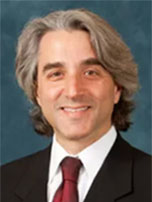
Arthur Lupia
ANES Principal Investigator 2005-2009
Arthur Lupia was named the Hal R. Varian Collegiate Professor of Political Science at the University of Michigan. He received a B.A. degree in Economics from the University of Rochester and M.S. and Ph.D. degrees from the California Institute of Technology. He conducts research on topics relevant to politics and policy including voting, elections, persuasion, opinion change, civic education, coalition governance, legislative-bureaucratic relationships and decision-making under uncertainty. His work has received many honors including the 2007 Warren Mitofsky Innovators Award from the American Association for Public Opinion Research. He has been awarded fellowships from Center for Advanced Study in the Behavioral Sciences (1999-2000) and the John Simon Guggenheim Foundation. He was inducted as a fellow of the American Association for the Advancement of Science in 2004.

Donald Kinder
ANES Principal Investigator 1990-1992 and 2000-2004
Kinder was named a Phillip E. Converse Collegiate Professor of psychology and political science for his work at the University of Michigan. He also served as the Chair of the Political Science department and a research scientist for the Center for Political Studies. Kinder’s research and teaching center on public opinion and elections, the impact of mass media, and race and politics. Before his contributions at the University of Michigan, Kinder obtained his doctorate degree at the University of California in Los Angeles. He contributed to many publications including Divided by Color: Racial Politics and Democratic Ideals and the Handbook of Social Psychology.

Steven Rosenstone
ANES Principal Investigator 1990-1996
Rosenstone began his distinguished studies at Washington University and continued at the University of California-Berkely. He began working at Yale University, specializing in electoral politics. He served as Professor and Director for the Center of Political Studies at the University of Michigan. Rosenstone moved forward again to serve as the dean of the College of Liberal Arts at the University of Minnesota’s Twin Cities campus. As the Dean, Rosenstone has shown insightful leadership, overseeing major renovations for teaching facilities, renewing partnerships with the community, and fostering substantial growths in faculty and research capabilities. Aside from his administrative feats, Rosenstone has provided insight to areas including: political systems, higher education in America, elections and voting, and political rules and norms.

Arthur H. Miller
ANES Principal Investigator 1972-1976
Miller began his studies at the University of Minnesota. His interests began in engineering, but his knowledge of computers and statistics met with public opinion research during the end of his undergraduate career. He obtained his doctorate degree in Political Science at the University of Michigan. Miller worked as an assistant professor at Ohio State University. He soon returned to Michigan to teach in the Political Science department and to serve as the ANES Principal Investigator. Miller became an Associate Professor of Political Science and the Senior Study Director at the Center for Political Studies. He left the University of Michigan to serve as a full professor at the University of Iowa. He greatly contributed to social research directing the University of Iowa Social Science Institute and the University of Iowa International Evaluation Project. Miller regularly authored journal articles exploring his research and thoughts on public opinion and campaigns. His most cited and influential work remains his early publications on political trust within the constituency regarding candidates. Though his early work focused on American politics, he later embarked on several comparative studies of political behavior in Western and Eastern Europe.
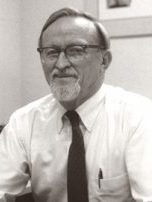
Phillip E. Converse
ANES Principal Investigator 1956-1960
Converse began his undergraduate studies in English Literature at Denison University and obtained a Master’s Degree in Sociology at the University of Iowa in 1950. Immediately after graduating, he was drafted into the U.S. Army. He continued to study at Sorbonne University in Paris, pursuing graduate programs at the University of Michigan during his service. He obtained two graduate degrees at the University of Michigan during the 1950s, including a Doctorate degree in Social Psychology. He remained at the University of Michigan, teaching in the Sociology Department and directing the National Elections Studies Center. As the Principal investigator at the National Elections Studies, Converse conducted unmatched research on voter behavior and co-authored The American Voter and The Quality of American Life: Perceptions, Evaluations, and Satisfactions. Converse left Michigan to become the Director of the Center for Advanced Study in Behavioral Sciences at Stanford University. He retired from Stanford in 1994 but the awards and honors have continued. He received the Henry Russel Lectureship at the University of Michigan. Stokes is a fellow of the American Academy of Arts and Sciences, a member of the National Academy of Sciences, and a fellow of the American Philosophical Society. Converse has also received honorary degrees from Harvard the University of Michigan due to his groundbreaking work in voter behavior and electoral politics.
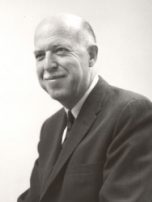
Angus Campbell
ANES Principal Investigator 1948-1960
Angus Campbell was one of the founding members of the Institute of Social Research, the Survey Research Center, the Center for Political Studies, and the Interuniversity Consortium for Political Research. Beyond his administrative roles at the Institute, Campbell continued to work on expansive research projects and publications. Among his most well-known collaborations are The American Voter and The Sense of Well-Being in America: Recent Patterns and Trends. He served as a professor in psychology and sociology at the University of Michigan and a lecturer at the University of Michigan Law School. Campbell received his Bachelors and Masters degrees from the University of Oregon and his doctorate degree from Stanford University. Upon leaving Stanford, Campbell accepted a position within Northwestern University’s social psychology department, expanding beyond his primary interest in experimental psychology. Campbell joined Rensis Likert’s Division of Program Surveys in the Department of Agriculture in Washington D.C. in 1942. The group conducted research on social economic problems during the wartime years. He developed skills in research administration but also in survey research methodology, particularly in probability, sampling, interview techniques, and questionnaire construction. Campbell came to the University of Michigan’s newly established Survey Research Center, and spearheaded the center’s expansion while establishing a permanent legacy in the world of social research.

Simon Jackman
ANES Principal Investigator 2010-2016
Simon Jackman is Professor of Political Science and (by courtesy) Statistics at Stanford University. He received his PhD from the University of Rochester in 1995. Prior to his Stanford appointment he was on the faculty at the University of Chicago (1994-96) and a visiting graduate student at Princeton University (1991-94). He was a Visiting Professor at the United States Studies Centre at the University of Sydney (2009) and a Fellow at Research School of the Social Sciences, Australian National University (1996-97).
Jackman’s work spans many aspects of American politics and political methodology. His book, Bayesian Analysis for the Social Sciences, a 600 page statistics text, was published by John Wiley in late 2009. In 2007-08 Jackman collaborated with Lynn Vavreck to field a Web-based, six wave, panel study of the American electorate (the Co-operative Campaign Analysis Project); a study of the dynamics of public opinion of the 2008 presidential primary campaign (coauthored with Vavreck) has appeared in the Journal of Elections, Public Opinion and Parties. Other recent publications include “Measuring District Preferences with Implications for the Study of U.S. Elections” with Matt Levendusky and Jeremy Pope, Journal of Politics, 2008, 70(3): 736-753; “The Limits of Deliberative Discussion: A Model of Everyday Political Argument”, Journal of Politics, 2006, 68(2): 272-283; “Pooling the Polls Over an Election Campaign”, Australian Journal of Political Science, 2005, 40(4):499-517; “The Statistical Analysis of Roll Call Data”, with Joshua Clinton and Douglas Rivers, American Political Science Review, 2004, 98(2):355-370. Earlier research has appeared in the journals listed above and PS: Political Science and Politics, the British Journal of Political Science, Electoral Studies, Legislative Studies Quarterly, Annual Reviews of Political Science and Political Analysis. Jackman serves on the editorial boards of the American Political Science Review, the American Journal of Political Science, the Journal of Politics, Electoral Studies, Public Opinion Quarterly, and he is a co-editor of Annual Reviews of Political Science and an associate editor of Political Analysis. He served as President of the Society for Political Methodology in 2003-05. At Stanford he co-directs the Methods of Analysis Program in the Social Sciences, and (with Gary Segura) the Stanford Center for American Democracy.
Jackman has considerable experience as a survey researcher, particularly in the Internet realm. In the 2000 election campaign, Jackman consulted for Knowledge Networks Inc, an Internet based survey research firm founded by Jackman’s Stanford colleagues Douglas Rivers and Norman Nie. In 2002-04 Jackman served on the Board of the American National Election Studies. In addition to his work in 2007-08 with Lynn Vavreck on CCAP, Jackman has commissioned and fielded phone polls in France (with NSF support, with Paul Sniderman and French partners) and mixed-mode phone/Internet surveys in Australia, in a series of studies focusing on attitudes towards the United States, on behalf of the United States Studies Centre at the University of Sydney.
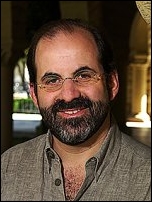
Jon Krosnick
ANES Principal Investigator 2005-2009
Jon Krosnick was named Frederic O. Glover Professor in Humanities and Social Sciences. He received a B.A. degree in psychology from Harvard University and M.A. and Ph.D. degrees in social psychology from the University of Michigan. He has taught courses on survey methodology around the world at universities, for corporations, and for government agencies as well as provided expert testimony in court. His scholarship has received many honors including the American Association for Public Opinion Research’s AAPOR Award for Exceptionally Distinguished Achievement, the Phillip Brickman Memorial Prize for Research in Social Psychology, Midwest Political Science Association’s Pi Sigma Alpha Award, a fellowship at the Center for Advanced Study in the Behavioral Sciences, the University of Wisconsin’s Brittingham Visiting Scholar Position, and the American Political Science Association’s Best Paper Award.
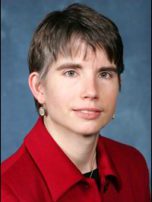
Nancy Burns
ANES Principal Investigator 2000-2004
Nancy Burns served as the National Election Studies’ Principal Investigator from 1999-2006. Burns began her studies at the University of Kansas and continued to Harvard University where she obtained a Masters and Doctorate degree in Political Science. After completing her studies, Burns returned to the University of Michigan where she researched and taught in the Political Science department and the Institute for Social Research. Burns was named a Henry Simmons Frieze Collegiate professor and a Warren E. Miller Collegiate Professor at Michigan. She studies gender, race, political participation, public opinion, and intergovernmental relations in the American context. Her most recent book, The Private Roots of Public Action: Gender, Equality, and Political Participation (2001), won the Victoria Schuck Award from the American Political Science Association for the best book on gender and politics. Burns serves as the Director and Research Professor of the Center for Political Studies at the University of Michigan. She teaches courses on gender and race and politics, quantitative methods, research design, political participation, and urban politics.
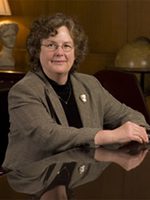
Virginia Sapiro
ANES Principal Investigator 1998
Sapiro was named a Sophonisba P. Breckinridge Professor of Political Science and Women’s Studies at the University of Wisconsin-Madison. While teaching, she maintained the title of Vice Chancellor for undergraduate Teaching and Learning. Sapiro primarily focuses on political behavior, political psychology, gender politics, and political and feminist theory. Just before her appointment at the University of Wisconsin, Sapiro earned a Bachelor’s degree with high honors in government at Clark University, and a doctorate degree at the University of Michigan. During her work in Wisconsin, she served as the chair of the Department of Political Science and the Women’s Studies Program, and also the director of the Social Science Data and Computation Center. Sapiro was the founding President of the American Political Science Association Organized Section on Women and Politics Research. She has worked among the editorial boards of the American Political Science Review, American Journal of Political Science, Political Psychology, Social Science History and Women and Politics. Sapiro has received numerous awards and recognitions for her work in the University as well as the community.
F. Gerald Kline
ANES Principal Investigator 1974
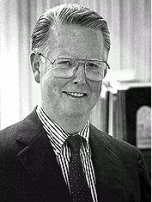
Donald Stokes
ANES Principal Investigator 1956-1960
Stokes received his Bachelor’s degree from Princeton University and his doctorate degree in Political Science from Yale University. He immediately began work at the University of Michigan as a professor and administrator. In 1970, he became the chairman of the Department of Political Science until 1971, when he was appointed the Dean of the graduate school. Stokes left his positions at the University of Michigan for Princeton University’s Woodrow Wilson School of Public and International Affairs in 1974. After eighteen years, Stokes stepped down as Dean in 1992 and continued as a regular faculty member. Stokes co-authored many significant books including The American Voter, Elections and the Political Order, and Political Change in Britain. Stokes was a member of the Advisory Committee on Research of the National Science Foundation and also the National Research Council. His contributions earned him the Elmer B. Staats Award for a distinguished career in public service.

Gerald Gurin
ANES Principal Investigator 1952
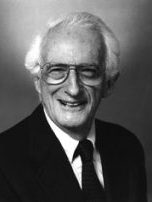
Robert Kahn
ANES Principal Investigator 1948
Kahn began his studies looking to enter dentistry, only to become interested in teaching and American Studies at the University of Michigan. In absence of an American Studies major, Kahn graduated in 1939 with an honors degree in English and a minor in economics. Kahn then pursued a Master’s degree and received a teaching certificate. Though he wanted to continue in a doctorate program, uncontrollable circumstances led him to teaching in Detroit and gathering data for unemployment statistics. Though initially a secondary plan, this governmental job opened up a future in social science to the young Kahn. He soon was promoted to the state supervisor for the Michigan Employment Survey. Kahn sent monthly analyses to the federal government, and in 1942 the Census Bureau recruited him to work in the Washington. There he learned about quantitative survey methods and cemented his interest in pursuing survey research and social science. Thus, in 1948 Kahn returned to the University of Michigan to work in the newly established Survey Research Center. He continued to look into graduate programs and finally found a place within a new social psychology doctorate program at the University. He obtained his Ph.D. in 1952 while working to shape the new Institute and conduct research. He contributed to the field of survey methodology with one of his first books entitled, The Dynamics of Interviewing. He applied his survey research to pioneering the field of organizational behavior. He wrote The Social Psychology of Organizations, attempting to understand organization effectiveness and membership well-being. He linked this to social psychology and international studies, writing fundamental books entitled Work and Health and Organizations and Nation-States. Kahn truly shaped the field of survey research and altered common understanding of organizations and its members.
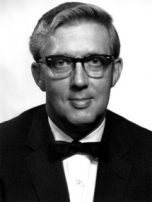
Warren E. Miller
ANES Principal Investigator for over 20 years and founder of the Inter-University Consortium for Political and Social Research (ICPSR)
Warren E. Miller played a seminal role in political behavioral studies and survey research at the University of Michigan and beyond. Miller received his Bachelor’s and Master’s degrees from the University of Oregon in 1948 and 1950 respectively. He then attended Syracuse University to obtain a Doctorate in Philosophy by 1954, while also teaching for two years at the University of California-Berkeley. During his time at Syracuse and Berkeley, Miller conducted research the University of Michigan’s new Survey Research Center. Miller came to Ann Arbor in 1951 to work directly with Angus Campbell and Robert Kahn during the 1952 elections. Miller became a professor in the political science department at Michigan in 1956, although he continued to play a leading role in the Survey Research Center. In 1960 Miller co-authored The American Voter with Angus Campbell, Philip E. Converse, and Donald E. Stokes. This book, along with the 1966 publication Elections and Political Order, completely altered nationwide conceptions of voting behavior. Miller and his colleagues spearheaded the research and voter surveys that confirmed the importance of candidates’ personalities and values within these publications. The Survey Research Center transformed into a leader in political and electoral studies, increasing demand for data, training, and expertise. During the 1960s and 1970s, Miller consulted various news networks, developing better analytical election coverage. He coined the term “projection” that remains in use today when estimating election outcomes. To meet the demand for data and training, Miller founded the Inter-University Consortium for Political and Social Research (ICPSR) in 1962. With Miller as its first executive director, the ICPSR established a summer program in quantitative methods of social research and a growing archive of quantitative social science data. Years later in 1970, Miller founded the Center of Political Studies to utilize computers and surveys in better analyses of political behavior and the American voter. As the centers Principal Investigator from 1970 until 1981, Miller expanded the scope of the Center and secured funding from the National Science Foundation, which deemed the CPS a national resource for political scientists. Miller left his multiple roles at the University of Michigan to teach at Arizona State University starting in 1982. While serving as a professor, researcher, director, and consultant in Michigan and Arizona, Miller received countless awards and honors. The Frank J. Goodnow Award for Distinguished Service to the Profession of Political Science was due to his contributions to the field, but also in part to his service as President of the American Poltical Science Association. Moreover, several honors have been established in his name, like the ICPSR summer scholarship and the University of Michigan distinguished professor award. To this day, Warrren E. Miller is recognized as an innovator, an expert, and an unmatched asset to the field of field of electoral politics and voting behavior.
